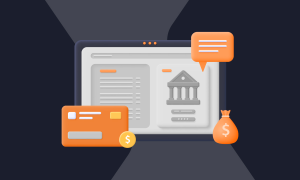Economic recessions bring uncertainty and financial challenges for individuals and families across the United States. These periods often result in reduced job security, fluctuating markets, and increased living costs, leaving many feeling anxious about their financial stability. However, proactive planning and smart financial strategies can help mitigate these challenges and foster resilience.
In this guide, we explore practical steps for effectively managing your finances during an economic downturn. From re-evaluating budgets to building an emergency fund, you’ll learn actionable strategies to navigate tough times with confidence.
Stabilize your finances with a focused budget

The first step to regaining control during a recession is understanding your financial starting point. Begin by reviewing your income, expenses, and savings. Make a detailed list of your fixed and variable expenses, including rent, utilities, groceries, and discretionary spending. By knowing where your money is going, you can identify areas to cut back without compromising essentials.
Evaluate your income sources as well. If job security is uncertain, consider how you might supplement your earnings. Freelancing, part-time work, or monetizing hobbies are potential ways to create additional income streams. Ensuring you have a realistic view of your financial situation sets the stage for effective planning.
Create a recession-proof budget
A budget tailored for challenging economic conditions focuses on prioritizing needs over wants. Start by addressing critical expenses like housing, utilities, and food. Cut unnecessary spending, such as dining out, subscriptions, or luxury purchases. Use the 50/30/20 rule as a guide: allocate 50% of your income to necessities, 30% to discretionary spending, and 20% to savings or debt repayment. Adjust these percentages based on your current financial state and goals.
Additionally, track your spending regularly. Free apps and tools can help you monitor and maintain your budget, ensuring you stick to it even during volatile periods. Staying disciplined with your budget is key to weathering a recession.
Build financial resilience with smart saving strategies
During a recession, having an emergency fund serves as a crucial financial safety net, offering stability and peace of mind during uncertain times. This fund provides a buffer against unexpected expenses, such as medical bills, car repairs, or job loss, allowing you to navigate challenges without resorting to high-interest debt.
Financial experts recommend saving three to six months’ worth of living expenses, but the key is to start where you can. Begin by setting aside small, consistent amounts from each paycheck, even if it’s just a few dollars. Automating your savings is an effective way to ensure regular contributions without relying on willpower.
If your budget feels stretched, think creatively about boosting your savings. Selling unused household items, taking on freelance work, or reducing non-essential expenses like streaming services or dining out can all help. The goal isn’t perfection or overnight success but making steady progress toward building a cushion for the unexpected.
Explore low-risk savings options
Storing your emergency fund in a low-risk account is essential for ensuring both accessibility and stability, particularly during periods of economic uncertainty. Opting for accounts like high-yield savings accounts, money market accounts, or certificates of deposit (CDs) can offer better interest rates than traditional savings accounts while safeguarding your funds.
These options combine security and modest growth, making them ideal for protecting your financial safety net. During times of economic downturn, it’s wise to avoid high-risk investments, as they may expose your savings to unnecessary losses.
While focusing on building your emergency fund, remain mindful of inflation. Inflation can erode the purchasing power of your money over time, so it’s important to strike a balance between keeping funds readily accessible and seeking accounts that offer returns above the inflation rate.
By having some cash on hand for immediate needs and storing the rest in low-risk, interest-bearing accounts, you’re better prepared for emergencies. Financial resilience begins with a secure and well-planned approach to safeguarding your savings.
Minimize financial risks and plan for recovery
Debt can become a significant burden during a recession, especially when rising interest rates make borrowing more expensive. To protect your financial health, prioritize reducing high-interest debts, such as credit card balances, which can quickly spiral out of control if left unaddressed. Begin by focusing on paying off the debts with the highest interest rates first, as this strategy minimizes the total interest paid over time.
If managing multiple debts feels overwhelming, consider consolidating them into a single loan with a lower interest rate. This approach simplifies payments and can reduce monthly obligations, easing financial pressure. Alternatively, reach out to creditors to negotiate more favorable terms, such as lower interest rates or extended repayment periods, to make payments more manageable.
For student loans, explore programs like income-driven repayment plans, which adjust monthly payments based on your earnings, or temporary deferments if you qualify. These options can provide relief during challenging times.
Paying down debt during a recession not only improves your cash flow but also helps alleviate the stress associated with financial uncertainty. By tackling debt strategically, you can free up resources to build an emergency fund or invest in your future, creating a more secure financial foundation even amidst economic turbulence.
Invest wisely during volatile times
Economic downturns can create opportunities for long-term investors. If you have a stable financial foundation and an emergency fund, consider investing in low-cost index funds or blue-chip stocks. These investments tend to weather economic challenges better than riskier options.
However, avoid making impulsive decisions based on market fluctuations. Consult a financial advisor if needed to create a diversified investment strategy that aligns with your goals and risk tolerance. Investing with a focus on long-term growth can position you for recovery as the economy stabilizes.
Conclusion
Managing personal finances during an economic recession demands discipline, proactive planning, and the ability to adapt to changing circumstances. By crafting a detailed and focused budget, building a robust emergency fund, reducing high-interest debt, and making informed investment decisions, you can approach financial challenges with greater confidence.
While economic downturns can be stressful, they also present an opportunity to strengthen financial habits, reassess spending priorities, and create a foundation for long-term resilience. The key is to remain consistent in your efforts, even when progress feels slow. Small, steady actions can lead to significant improvements over time.
By taking these steps, you can not only weather the immediate difficulties of a recession but also emerge with a stronger, more secure financial future, regardless of economic conditions. Resilience, preparation, and adaptability are the cornerstones of thriving even in uncertain times.




